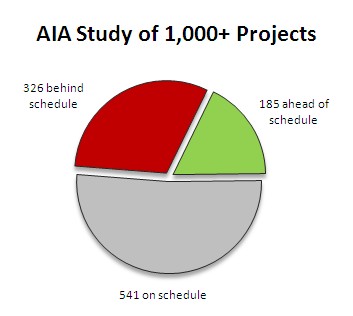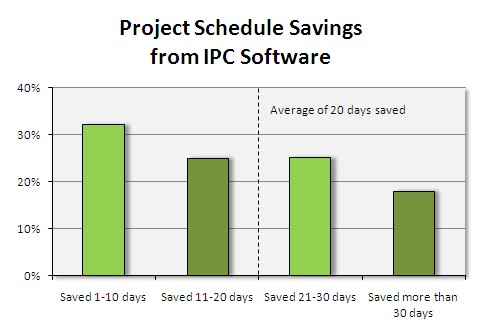IPD and IPC – The Perfect Marriage for Faster Projects
Speed matters. That is a fundamental fact of the construction business. In my years as an architect, I don’t recall ever meeting a single client who said, “It doesn’t matter when my building gets completed.” Every project has deadlines, and every deadline is important. If the owner is financing the work through a construction loan, then the faster the building is completed, the sooner they can complete the loan. If the owner is a school district or an expanding business, then there may be hard deadlines that must be met, such as the day that the new school needs to be open for students or when the business owner needs the space for additional equipment or employees.

Unfortunately, the complexity of construction can make the scheduling process challenging to say the least. In 2009 Markku Allison, AIA, conducted a presentation called “AIA Update on Integrated Project Delivery” at the Lean Construction Institute Design Forum. His presentation showed that in a recent study of approximately 1,000 commercial construction projects, over 30% of the projects were behind schedule. If you’re a designer, a builder, or an owner trying to meet an important deadline for your own project, this is a frightening percentage.
 The good news is that new delivery models based on Integrated Project Delivery (IPD) are showing tangible results in improving project schedules. The same presentation showed that projects using IPD are far more likely to be on schedule, with only 10% of IPD projects behind schedule. The increased collaboration and early involvement of key stakeholders in IPD provides a greater level of accuracy and commitment to the project scheduling process.
The good news is that new delivery models based on Integrated Project Delivery (IPD) are showing tangible results in improving project schedules. The same presentation showed that projects using IPD are far more likely to be on schedule, with only 10% of IPD projects behind schedule. The increased collaboration and early involvement of key stakeholders in IPD provides a greater level of accuracy and commitment to the project scheduling process.
Advances in technology have also played a critical role in improving the speed of project delivery. Building Information Modeling (BIM) and Integrated Project Collaboration (IPC) software facilitate faster sharing of information between all project participants, resulting in better decisions and less opportunity for delays. Earlier this year we conducted a survey of general contractors and construction managers using Submittal Exchange’s IPC software for electronic project communications. The results clearly showed the real benefits that IPC software can provide when it comes to project speed.
The project managers and other construction professionals responding to our survey reported that, on average, use of Submittal Exchange’s IPC solution had saved 20 days from their project schedule. (Individual answers varied, but this was the average across seventy different project managers who responded.) This is an exciting statistic, but let’s take it a step further by translating this into real dollars. On a $3 million construction project with a construction loan at prime + .5% (using today’s rates), the owner is paying interest charges of about $300 per day. Saving 20 days off the project schedule would save the owner approximately $6,000 in interest. On a $30 million project, 20 days could translate to $60,000 in interest savings, and on a $300 million project, those 20 days may be worth $600,000. And that’s the just the loan interest; depending on the project and the owner, there may be other circumstances that make those schedule savings even more valuable.

Speed matters in construction. Integrated Project Collaboration (IPC) software helps project teams complete construction faster while enhancing quality, not sacrificing it. In an era of tight timelines and tighter budgets, it only makes sense for our industry to make the shift to IPC software.
- Markku Allison lci design forum (1427 Downloads)

Matt Ostanik, AIA, CSI, LEED AP
Matt is a licensed architect and the president and founder of Submittal Exchange, a comprehensive online system for architects, engineers, contractors, construction managers, and facility owners to exchange, review, and archive construction submittals, requests for information (RFIs), and other construction communications electronically. He provides coverage of advances in software, cloud computing, and information portability specific to the AEC industry for Buildipedia.com.

